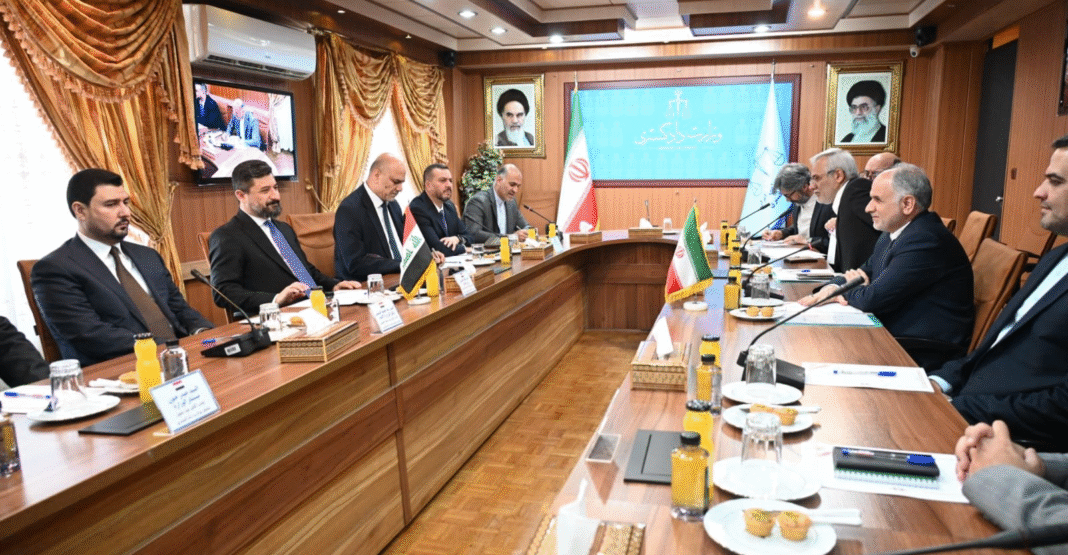Iraq and Iran enhance legal cooperation by launching new talks between their justice ministries. These discussions focus on boosting judicial collaboration and applying earlier legal agreements between the two countries.
Iraq’s Justice Minister Khalid Shwani traveled to Tehran to meet his Iranian counterpart, Amin Hossein Rahimi. Both sides quickly agreed to improve coordination on legal matters and expand the partnership. They emphasized the need for stronger links between their justice systems.
During the meeting, both countries agreed to consider forming a joint technical committee. This committee will supervise the implementation of signed agreements. It will also ensure smooth communication between Iraq and Iran on judicial and correctional issues. This move shows how Iraq and Iran enhance legal cooperation through active planning and follow-up.
The committee’s tasks will include exchanging legal expertise, improving correctional services, and updating both countries’ legal systems. These steps can make cross-border legal work more effective and transparent. As a result, both countries can benefit from more reliable and modern legal structures.
Furthermore, the talks included a plan for a new agreement. This proposal involves a memorandum of understanding for extradition and asset recovery. It aims to help both governments track and return public funds taken through corruption. The agreement also allows both sides to pursue suspects more easily.
Through these actions, Iraq and Iran enhance legal cooperation in tackling crimes that go beyond borders. This kind of teamwork shows a shared commitment to justice and legal reform. It also builds public trust in both nations’ legal institutions.
Officials from both countries described the meeting as constructive. They hope the new committee can begin work soon and keep building momentum. They also expressed interest in further expanding judicial ties to cover other areas of law.
This initiative opens the door for deeper legal ties between Iraq and Iran. By forming strong legal bonds, both governments can ensure fair trials, effective investigations, and more secure societies. Their cooperation marks a new phase in regional legal alignment.


